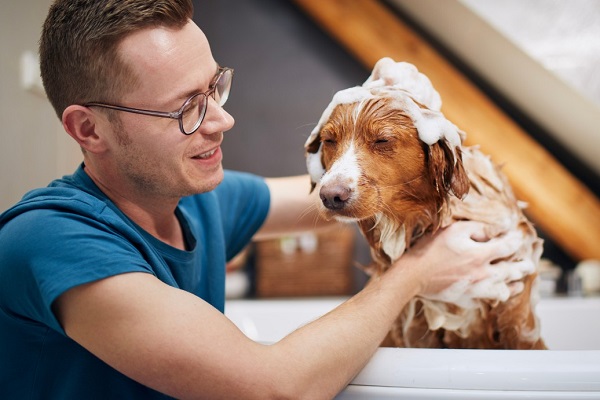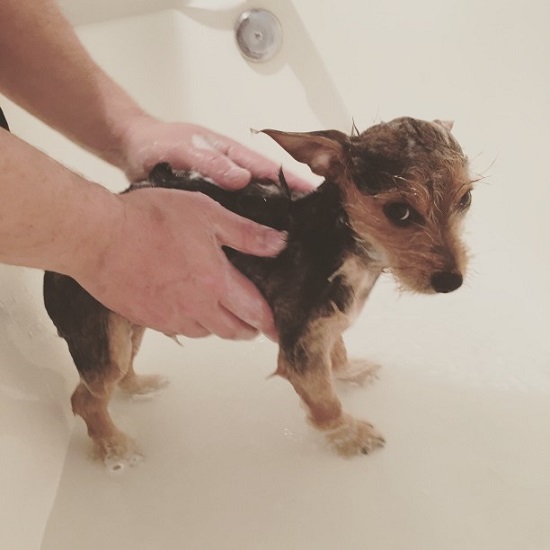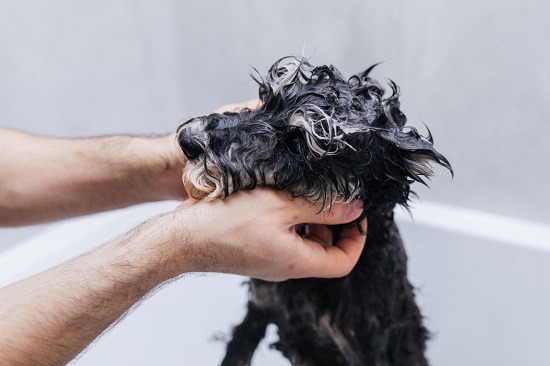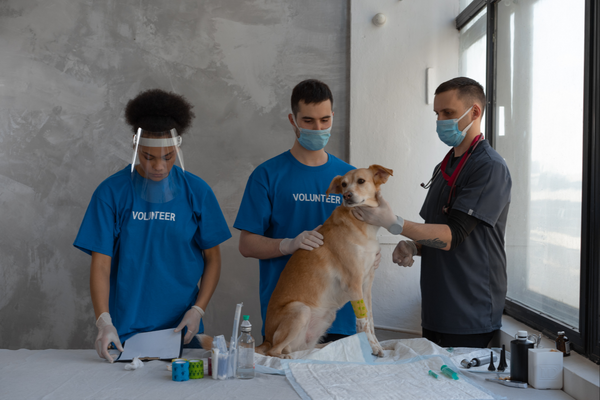It’s difficult to watch your dog scratch and whine as they suffer from skin allergies. However, washing can be a handy tool in managing this unfortunate condition and, if done correctly, can become a satisfying experience for both pet and owner.
Bathing your dog with skin allergies once or twice a week with the right shampoo can be a helpful way to help relieve symptoms such as inflammation and itching. However, this must be done correctly to avoid worsening your dog’s condition. Skin allergies in dogs can be challenging to treat, and veterinary guidance should always be pursued if your dog’s condition is worsening or not resolving.
What are skin allergies in dogs?
Allergies are common in humans and animals and can happen for various reasons. An allergy is when the body’s immune system reacts inappropriately to a substance, causing a reaction to something that generally would not threaten the body.
The substances that activate an allergic reaction may include different types of food, medications, insect bites, or environmental triggers like pollen or dust. The allergic response to this substance can cause a wide range of signs which may affect other body systems, including the skin.
Skin infections are one of the most common reasons owners seek veterinary awareness for their dogs, and skin allergies are the most common type of allergic reaction in dogs.
What are the signs of dog skin allergies?
Dogs with skin allergies, also called canine allergic dermatitis, may show a range of further symptoms, including:
- Itching – this can be localized or generalized (over the body)
- Chewing – particularly at sore or infected areas of skin
- Licking – usually focused on the paws
- Face rubbing
- Skin sores or illnesses
- Inflammation of the skin – the skin may look red and irritated initially and may become thickened over time
- An unpleasant skin smell
- Dry skin and dandruff
- Hair loss
- Rashes or raised lumps on the skin
How to wash a dog with skin allergies?
There are several factors to consider when washing a dog with allergies, including:
When should you wash your dog?
Suppose your dog has a new skin condition. In that case, it is essential to pursue veterinary advice before washing your dog, specifically if it is suffering from a skin infection or has inflamed skin.
The earlier your dog’s skin condition is investigated, the sooner a treatment plan can be executed. Veterinary advice will also help to identify and hopefully remove the cause of the allergic reaction; you can then begin to wash your dog to help to relieve symptoms.
You might notice the skin becoming dry and showing dandruff, or your dog is beginning to scratch more than usual. It is best to wash your dog as soon as possible when signs worsen to prevent extreme scratching, which may lead to a skin infection.
How often should you wash your dog?
Every dog is different, and it is essential to tailor your washing routine to suit your dog’s needs. However, as a general rule, a weekly bath should be fine to relieve soreness and itching in most puppies suffering from a skin allergy.
You can also clear allergens from your dog’s coat by wiping them down with a warm wet cloth; it is a good idea to make this part of your daily routine, ideally when you return from exercise or outdoor activity with your pet.
Washing your dog too often may worsen their condition, causing the skin to become flaky and dry. Moreover, washing is not advised if specific types of the flea treatment have been used, so confirm that you check the instructions carefully.
It is essential to be mindful of how satisfying your dog finds the washing experience; if the skin is quite sore or inflamed, washing may cause significant discomfort. In these cases, veterinary advice should be sought.
Should shampoo be used for dog skin with allergies?
It is one of the most significant factors to consider when washing a dog with skin allergies; using the wrong product may worsen the situation or even harm your pet. Therefore, it is important to seek veterinary advice before choosing shampoo.
Your dog may suffer from a yeast infection or secondary bacterial, so your veterinarian may advise using an antifungal or antibacterial shampoo.
For routine maintenance, an oatmeal shampoo can be beneficial for rehydrating dry skin and easing itchiness. Commercial oatmeal shampoos are available, but it is also a very simple shampoo to make at home – grind oats in a blender till they are a fine powder, and add to your dog’s bath water.
Another natural product that can be useful to relieve skin allergies is coconut oil, used after a bath on localized areas of dry skin and smooth over the fur.
What washing process should you use for bathing your dog?
It is important that washing is a relaxing, enjoyable, and soothing experience for your dog. A dog with skin allergies may need a weekly wash for the rest of its life, so it is more suitable for everyone if it is a pleasant experience.
Watch how your dog reacts to each step of the process; if they show signs of discomfort or distress, then change your strategy to make them more comfortable.
Before you wash your dog, ensure that they are calm and settled to give you the best opportunity for a relaxing washing experience. Also, ensure that the water is lukewarm; water which is too warm or cold will be uncomfortable for your dog, specifically on irritated or sore skin.
Placing a towel or mat at the bottom of the bath can help to prevent them from slipping on the surface, and a jug can be used to pour water over the body instead of enthralling your dog fully underwater.
Shampoos should be rubbed over the skin and coat and gently rubbed using a massaging motion. After applying the shampoo, ensure that it is thoroughly rinsed from the coat.
Take your time over-drying your dog, as this could be a sore and painful experience for a dog with irritated or inflamed skin. Avoid rubbing the coat and skin with a towel; pat gently with the towel and squeeze any extra water from the fur.
These are some important things that you should consider before washing a dog with skin allergies. Make sure to pursue a vet if your dog is facing a serious skin allergy.

 DogExpress
DogExpress




















 in Chandigarh, India.
in Chandigarh, India. 
